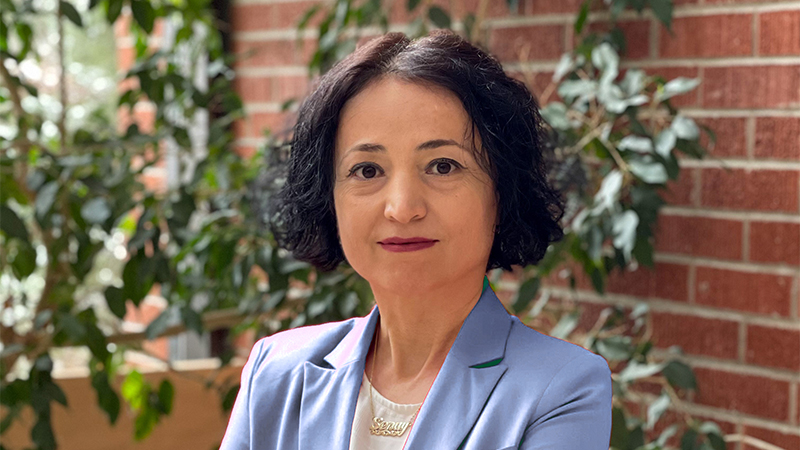Purdue University has launched a consortium to bring together academic researchers, Indiana farmers and industry stakeholders in a field-to-shelf hemp product development initiative.
The school’s new Hemp Products Utilization Consortium (H-PUC) aims to bridge the gap between academic research and market-ready hemp products. Officially launched Oct. 22, the consortium’s key objectives include conducting agricultural trials, refining processing conditions, scaling up production, and developing marketing strategies for sustainable hemp-based materials targeted at different industries.
“This collaborative effort not only accelerates our ability to bring environmentally friendly products to market but also strengthens Purdue’s leadership in industrial hemp research,” said Senay Simsek, H-PUC’s primary investigator and head of Purdue’s Department of Food Science.
Partners sought
Her team is now focusing on optimizing production and preparing for potential partnerships with industry players to commercialize these innovations. H-PUC’s collaboration allows Simsek’s team to continue advancing and scaling the research.
H-PUC’s primary focus is developing biodegradable superabsorbent materials derived from hemp hurd and bast fibers, which are produced through innovative methods pioneered at Purdue’s College of Agriculture. The materials, designed to retain water efficiently, offer a sustainable alternative to conventional superabsorbent products.
“H-PUC is addressing global needs and the challenges of growing populations and climate change through sustainable solutions,” Simsek said. “While our initial focus is superabsorbent materials, our vision extends beyond this. We aim to broaden our scope over time.”
Short- and long-term goals
Simsek outlined H-PUC’s phased approach, which includes short-term goals like securing funding, testing pilot-scale production, and assessing production conditions. “Our long-term plans include scaling up of production, partnering with companies with intellectual property, customizing materials for specific applications, and developing marketing strategies,” she said.
Simsek’s research has already demonstrated the efficacy of hemp hurds and bast in absorbent applications. “Hemp hurds. . . are highly absorbent due to their high cellulose content and low lignin levels, making them an excellent alternative for superabsorbent applications,” she said, noting the more durable outer bast layer, while less absorbent, contributes strength and durability to any final outputs.
High absorbtion capacity
Simsek’s team collaborated with Purdue Agronomy Department’s Marguerite Bolt and former Purdue researcher Laila Hossain to validate the effectiveness of the superabsorbent materials developed at the university. Standardized tests showed that the materials outperformed many traditional products like polyacrylate-based absorbents.
“The hemp hurd, due to its enhanced surface area and porosity from our refining process, showed significantly higher absorption capacity than both hemp bast and many traditional materials,” Simsek said, underscoring the sustainable potential of this technology.
The Purdue Innovates Office of Technology Commercialization, which has filed a patent application for the superabsorbent hemp-based materials, manages Purdue’s intellectual property and commercial partnerships. The office reported more than 460 invention disclosures and nearly 300 patents received in fiscal 2024, illustrating Purdue’s active role in innovation and technology transfer.
In a related initiative, Purdue researchers are developing hemp-based cellulose for absorbent products like diapers. This research, supported by the Purdue Innovates Office, seeks sustainable alternatives to synthetic materials in consumer products, potentially transforming the market for disposable absorbent goods.

Hemp Products Utilization Consortium leadership at Purdue: from left: Bernie Engel, the Glenn W. Sample Dean of Agriculture at Purdue University; Jona Williams of Momentum Management; Marguerite Bolt, Purdue Extension specialist; Jamie Petty of the Midwest Hemp Council; Senay Simsek, head of Purdue’s Department of Food Science; Jake Bergman of Consolidated Carbon One; Tim Neal of Iconoclast Industries; and Ronald Turco, associate dean and director of agricultural research and graduate education in the College of Agriculture, during a Oct. 22 signing reception in West Lafayette to commemorate the Purdue Hemp Products Utilization Consortium. (Purdue Agricultural Communications photo/Joshua Clark)

